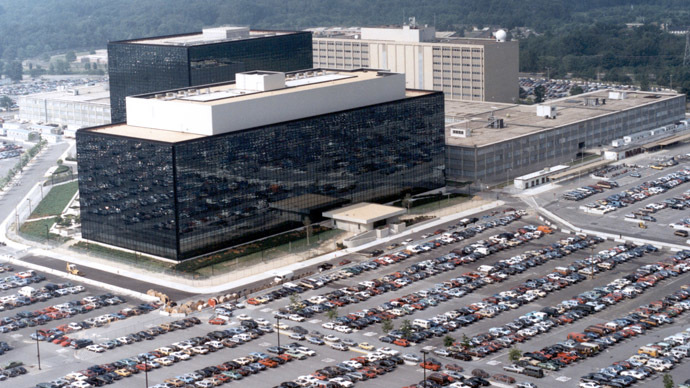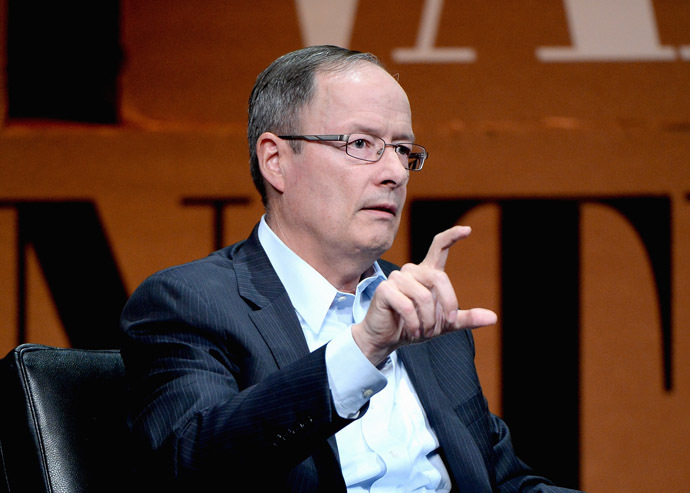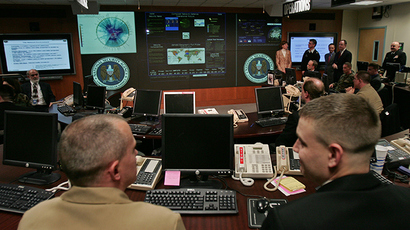NSA officials ignored own expert advice to end total eavesdropping on Americans

NSA experts advised the agency’s top executives to ax the mass collection of domestic landline phone conversation records as crossing a previously sacrosanct red line. The experts questioned its effectiveness and said it could lead to risks if exposed.
A group of NSA experts raised their voices against the total collection of American phone records years ago, AP reports. The group was led by a top ranking NSA official, now retired, who had direct access to the former NSA head Keith Alexander and presented him with group’s concerns face to face.
The former official, initially a codebreaker who made it to the top of the NSA, agreed to talk to AP on condition of anonymity. The man recalled that he personally learned about the top secret phone records campaign only in 2009, while the program was initiated right after the Sept. 11, 2001 terror attacks. He stressed that he never heard of the program being used for anything else but hunting terrorism plots within the US.
The group of NSA dissidents advocated at least two major reasons to end the secret program.
AP Exclusive: Some in NSA warned in 2009 that collecting phone records would spark backlash: http://t.co/NSxKtV2K61
— The Associated Press (@AP) November 20, 2014
In a 2009 talk with then-NSA Director Keith Alexander, the former official also argued that recording and archiving of nearly all landline phone conversations dramatically changed the very essence of the agency, originally created to eavesdrop on foreigners.
This switch was cited as decisive by former NSA contractor Edward Snowden, who in June 2013 passed to journalists large portions of top secret NSA materials, exposing the total American surveillance worldwide.
It was also pointed out that the program had been bringing really poor intelligence that would not justify the backlash in case the program was compromised.
The expert said that among the private phone records of practically every American collected by the NSA were calls to lovers, psychiatrists, suicide hotlines etc. - many things usually kept well away from public attention.
According to some estimates, the program still collects and stores the so-called metadata records on every landline phone call made in America, including subscribers’ phone numbers and the call duration of up to 3 billion phone calls each day.
Alexander “politely disagreed” with the arguments, the former official told AP.
“An individual did bring us these questions, and he had some great points,” Alexander, who headed the NSA from 2005 until retirement in 2013, confirmed to AP. “I asked the technical folks, including him, to look at it,” he said.
By 2009, significant concerns had grown within NSA headquarters in Fort Meade, Maryland, that the intelligence program of landline phone calls interception had become devalued. The share of mobile calls within the US was on the rise, whereas the number of landline calls had dropped off.

At the time the NSA was incapable of eavesdropping mobile phone calls for “technical and other reasons.”
That forced the NSA leadership to search for new techniques and it was proposed that communication companies would store the phone talk records themselves, whereas the NSA would simply have direct and high-speed access to their servers if they were looking for some specific information, Alexander said.
After holding consultations with Congress, the Justice Department and the White House, occupied by freshly-elected President Barack Obama, the NSA got a negative answer. The US government opted not to change the existing system that gave some guarantees against domestic terror plots, Alexander said.
Today the Obama administration has reconsidered the idea and is attempting to prohibit the NSA’s phone calls collection and has left only the capability to search through records made by the communication companies in accordance with acting requirements. But Republicans opposed the plan, which has fallen two votes short of advancing in the Senate on Tuesday.
So the secret NSA phone calls eavesdropping program within the US, which fell under the Foreign Intelligence Surveillance Court supervision in 2006, goes on.
The agency claims it obtains the records from communication companies under a court order. The NSA reportedly concentrates on “dirty numbers” of those suspected of having connections with terror groups abroad.
Such phone numbers undergo a “contact chaining” analysis process, checking out phone numbers it contacted to verify possible terrorist links inside the US.
Officials claim only 30 intelligence employees are allowed to access the database, which they do about 300 times a year.
There is no reliable information on how effective this method, which sometimes includes analysis of millions of American phone calls, is for preventing terror attacks on American soil.
So far the only known to the media confirmed case of the NSA phone surveillance program disclosing a terror ring is the case of cab driver Ahmed Nasiri Taalil Mohamud, Somali immigrant who was sentenced earlier this year to six years in prison for sending money to al-Qaida-affiliate terrorist organization in his native country.














